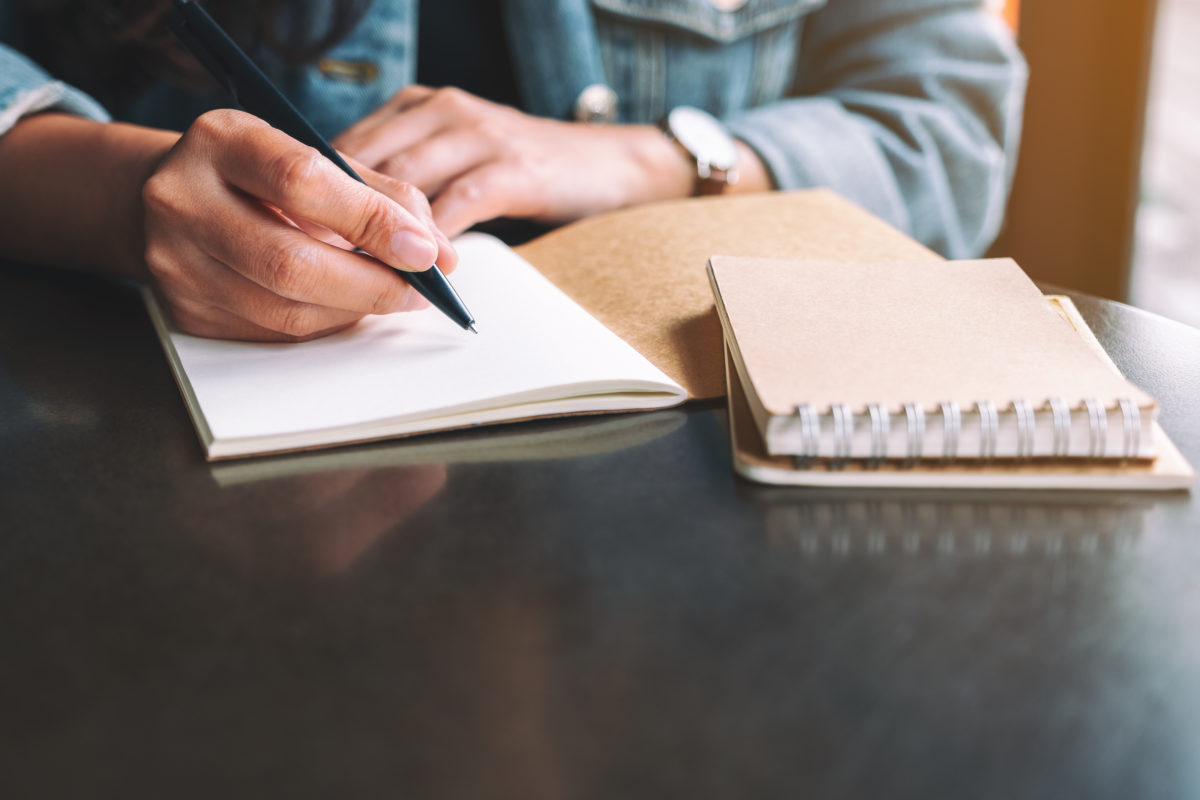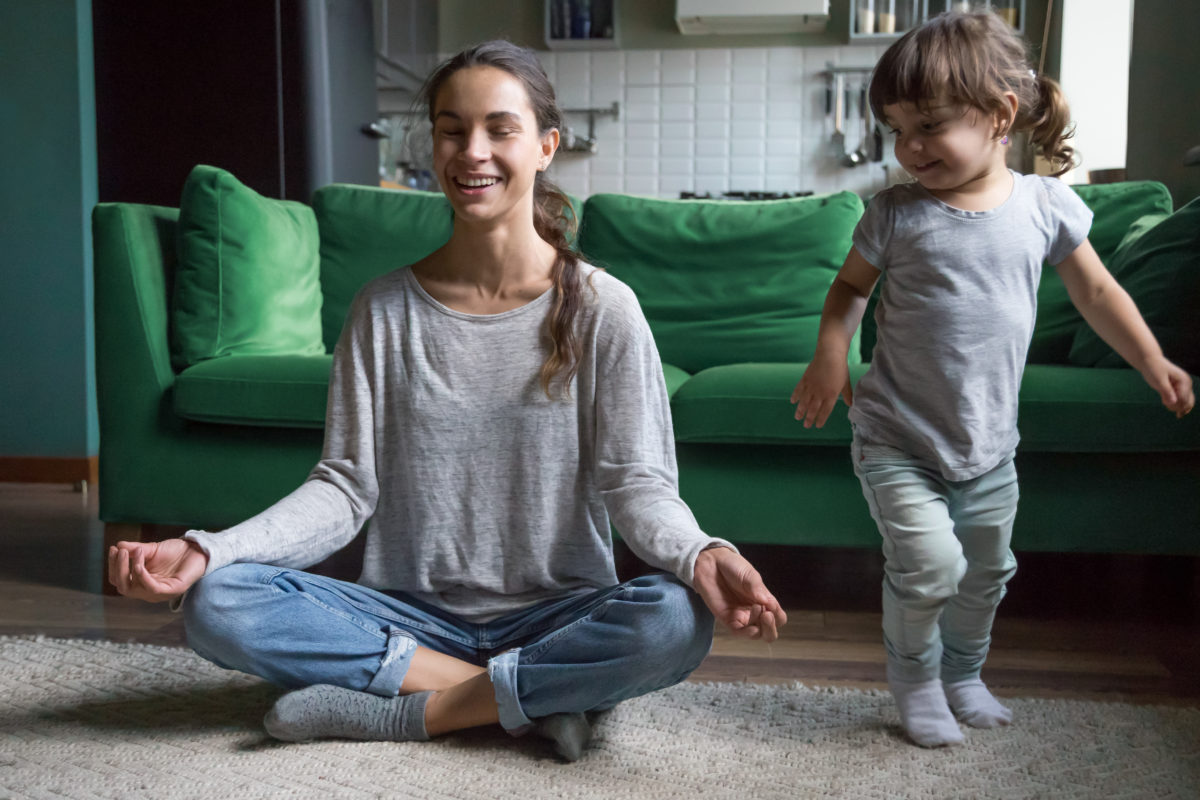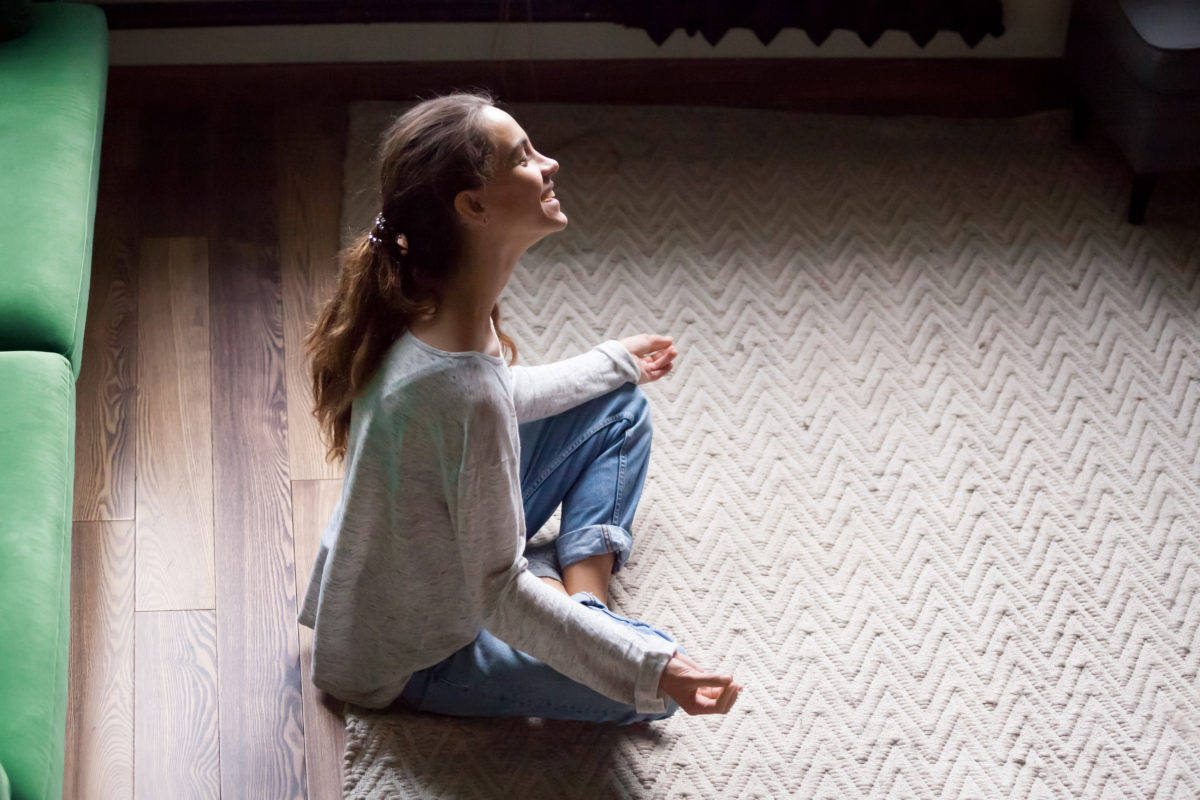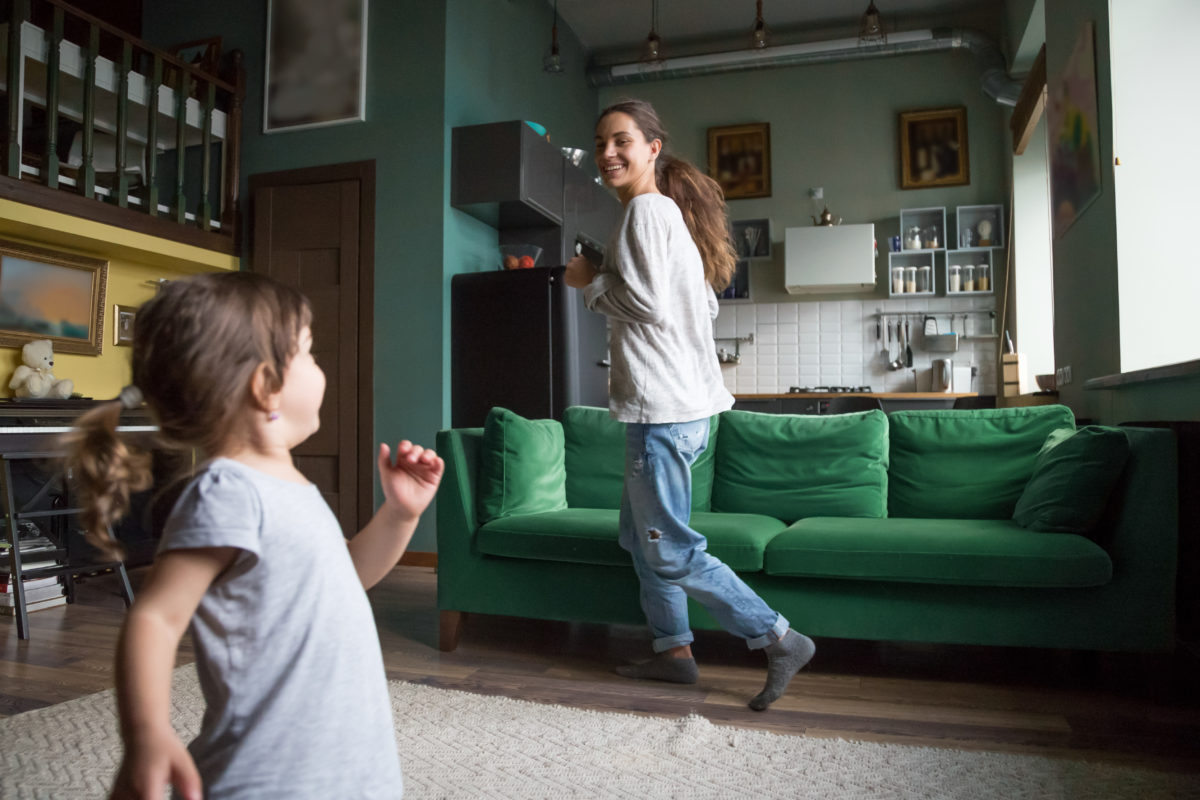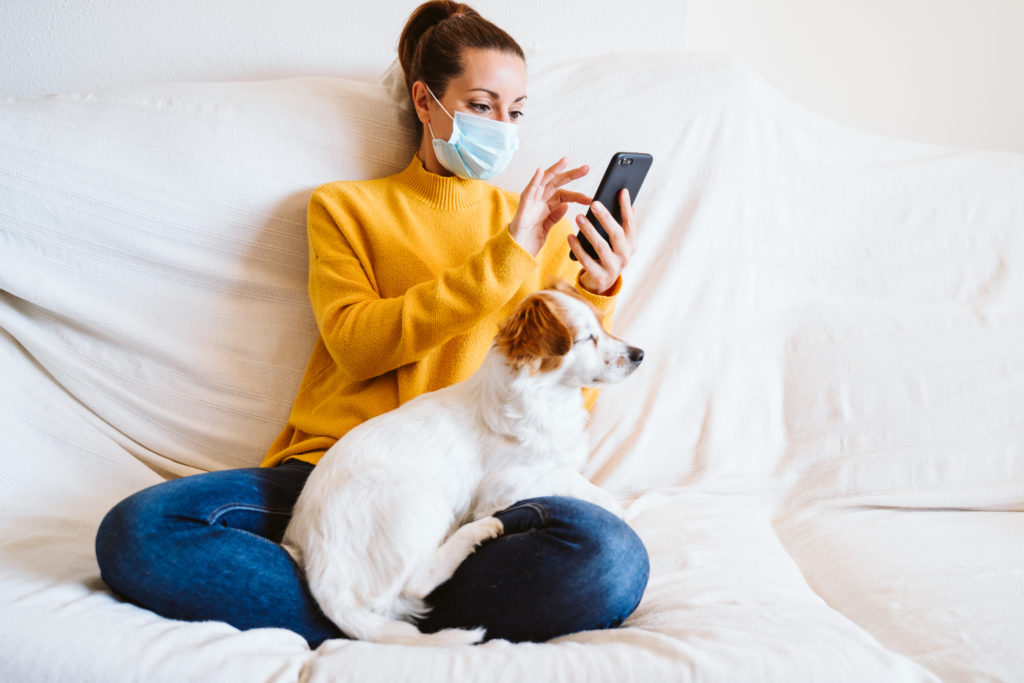Contagion, isolation, shutdowns and job losses — in just a few weeks, the coronavirus has dramatically changed our lives. And, with no quick return to normality in sight, the virus has started taking a toll on our mental health.
Nearly 40% of Americans are feeling anxious about the coronavirus pandemic, according to a recent survey from the University of Southern California. Another survey, conducted by Axios-Ipsos in March, reported that nearly a third of American adults said their mental health had worsened because of the coronavirus. Continued social distancing will only increase the emotional toll, the survey concluded.
How can we care for our mental health in these unprecedented times, while also supporting those around us? We asked local therapists Carmen Schmidt Benedetti and Doreen Van Leeuwen for advice.
Acknowledge your feelings
First, know that any feelings you’re having are OK and that anxiety is a normal response to something stressful, Benedetti said.

“With uncertainty, there can be feelings of hopelessness and helplessness. People may become depressed from being isolated at home and being out of their usual routines.”
Frustration, irritability and denial also are common responses, Van Leeuwen said. Stress, anxiety and depression might show up as an inability to fall or stay asleep, changes in appetite, increased heart rate, restlessness, lightheadedness, fatigue, muscle aches and pains, headaches and stomach trouble.
While all feelings are appropriate, it’s our reactions to our feelings — our behaviors — that can create problems, Benedetti said.
“In stressful situations, we often turn to coping strategies we have used in the past,” she said. These strategies might include drinking and drug use, binge eating, watching TV, playing video games, shopping online, spending time on social media and other activities that allow us to “check out” or avoid our feelings.
Of course, sometimes distractions are beneficial. But anxiety and depression can build up and intensify if we keep ignoring or avoiding these feelings.
Alcohol use can temporarily relieve negative feelings but lead to increased anxiety and depression the next day, Benedetti said. And spending a lot of time watching TV or looking at screens can be stimulating for our nervous system, rather than relaxing.
Focus on what you can control
“With so much of this situation being out of our control, focus on what you can control,” Benedetti said. “The only thing you can truly control is your own actions and behaviors. You will not able to help others if you are not taking care of yourself.”
She advised that you “check in with yourself” every day, first in the morning and then several times throughout the day, using a scale from zero to 10 (10 being the worst) to gauge how you’re feeling.
“Ask yourself: How am I feeling right now? What do I feel in my body? What do I need? How can I best take care of myself today?”
Be gentle on yourself.
“It’s ok to not feel ok. Practice self-compassion and self-care,” Benedetti said. “It’s ok to give yourself time to rest. Don’t beat yourself up if you aren’t doing all the things you said you were going to do, or compare yourself to others in terms of what they are doing.”
Practice mindfulness
“The more you can stay in the present moment, the easier it will be to manage and not get caught up in catastrophic thinking,” Benedetti said. “One of the best ways to do this is to focus on your breath.”
Here’s how: take deep breaths, pulling from your belly, and extend your exhale longer than your inhale. This helps activate the parasympathetic nervous system, which works to relax your body.
Another way to be mindful is to acknowledge your feelings, Benedetti said.
“Notice where you feel the emotions in your body. Remind yourself the feelings are temporary. This situation is temporary.”
And, to be mindful with your thoughts, notice worries as they arise.
“Try letting them go rather than going further down the path of those negative thoughts. Imagine setting them on a conveyor belt, or into a river and being taken away.”
Establish structure, routine and boundaries
Routine can help create a sense of normalcy in an abnormal time, Benedetti said. Have a set bedtime and wakeup time, identify tasks to accomplish in the morning, then shower, get dressed and have breakfast.
Benedetti recommended that people working at home set a work schedule, including a lunch break, to get yourself in the work mindset.
“Establish a work area and set boundaries around that, including the timeframe, and let others know what those times are and what you need from them in order to respect that.”
While spending a lot of time at home, often together with other family members, it can be helpful to find a time of day that is just for you, even if it’s just 10 or 15 minutes, she said.
Asking your family or spouse for space or a “time out” also can be a good way to prevent conflicts from escalating.
“Tensions can be high when anxiety levels are increased overall, and we can often say things we regret or don’t mean,” Benedetti said.
You can come up with words or phrases beforehand, rather than in the heat of the moment, to signal to others that you need time to yourself to calm down. Make a commitment to revisit the conversation at a later, specified time.
If it’s not possible to take some space in your home, Van Leeuwen recommended a walk or even a short break in your car.
Take care of your body and mind, stay physically active
Our physical health has a large impact on our mental health.
“If you neglect how you take care of your body, such as not getting enough sleep, being stagnant, not eating enough or eating things that don’t feel good to your body, your mind will not be able to operate at its optimum level,” Benedetti said.
Physical activity is key. “Movement is helpful for your nervous system, as we hold emotions in our bodies and movement is a way to release them.”
Movement — jumping, dancing or “shaking it off” — also can help children express or manage their feelings, she said, as can coloring, drawing and journaling.
She suggested doing whatever feels best for your body: yoga, walking, running, biking, dancing, stretching, strength training, meditation — any movement or self-soothing activity you can do while also maintaining social distancing.
Many local gyms and yoga studios are now offering online classes. Free workout videos and guided meditations can be found on YouTube and other sites.
Benedetti and Van Leuween also suggested taking breaks from the news and social media. Overdoing it while you try to keep up with every bit of news can heighten anxiety.
Connect with friends and family and offer support
Maintaining social connections is crucial for our emotional wellbeing under normal circumstances and even more so when sheltering in place at home.
“Use this time as an opportunity to connect with those in your household,” Benedetti said. “Ask thought-provoking questions, play games together, create crafts or art projects. All of these activities can help with boredom and staying engaged.”
Van Leuween recommended volunteering as a way to “keep your mind off yourself, while doing good for others.”
During the coronavirus pandemic, volunteering opportunities could include picking up and delivering meals to homebound residents and delivering supplies to assisted living facilities. The Center for Volunteer and Nonprofit Leadership, for example, is in immediate need of volunteers.
Benedetti suggested making time to communicate regularly with friends and family on the phone, via text or video messages and services like Skype and FaceTime.
Reaching out to people is also a good opportunity to offer support. “Ask them what they might need,” she said. “This is a difficult time for us all. We need to stay connected and support one another.”
Carmen Schmidt Benedetti, MA, is a Licensed Marriage and Family Therapist and EMDR Certified Therapist based in Santa Rosa. 707-331-4578, carmenschmidtmft.com.
Doreen Van Leeuwen is a Licensed Marriage and Family Therapist based in Santa Rosa. 707-202-6202, doreenvanleeuwen.com.
More Resources
211 Sonoma County: A free, confidential, 24/7 information and referral service and online database. Dial 2-1-1 or text your zip code to 898-211 for more help. 211sonoma.org/mental-health
NAMI Sonoma County: To reach the Warmline, call 866-960-6264 or email warmline@namisoco.org. Support groups soon available online, email info@namisoco.org for information
Sonoma County Crisis Stabilization Unit: 707-576-8181
Crisis Text Line: Text HOME to 741741 (for those who are more comfortable texting than talking)
Suicide Hotline: 1-800-273-TALK (8255)
Psychology Today Therapist Finder: Look up therapists in your area and filter by your insurance and/or type of issue you are dealing with. Most therapists are offering phone or online sessions during this time. psychologytoday.com/us/therapists
Sonoma County Online Meetups for Alcoholics Anonymous: sonomacountyaa.org/online-meetings
National Domestic Violence hotline: Staying home may not be the safest option for those experiencing domestic violence. Call 1-800-799-7233 or text LOVEIS to 22522 for support. thehotline.org/2020/03/13/staying-safe-during-covid-19.
Headspace and Insight Timer: Meditation apps with guided meditations for all levels, including meditations focused on dealing with feelings related to coronavirus.












